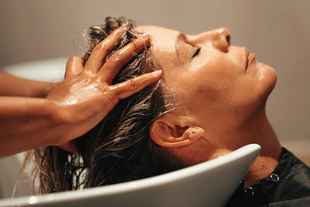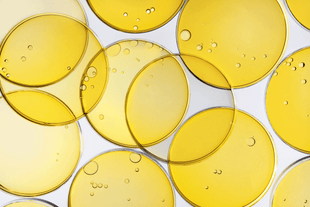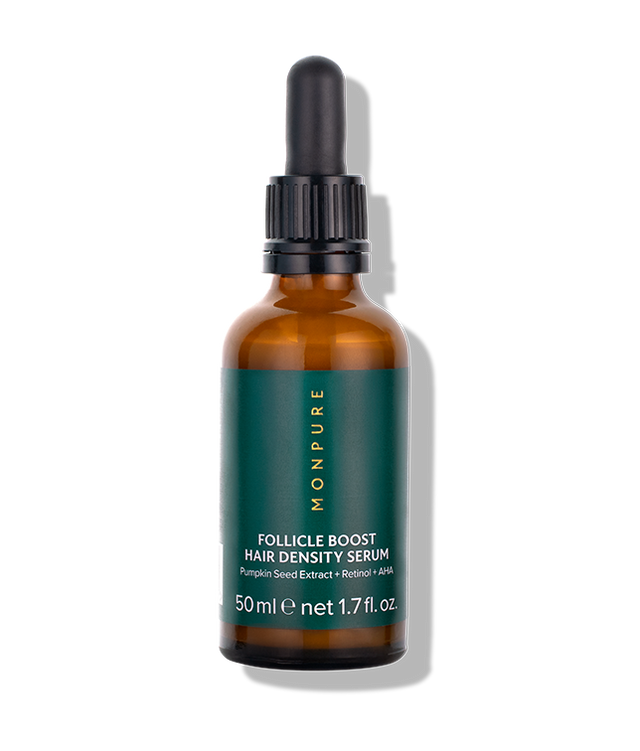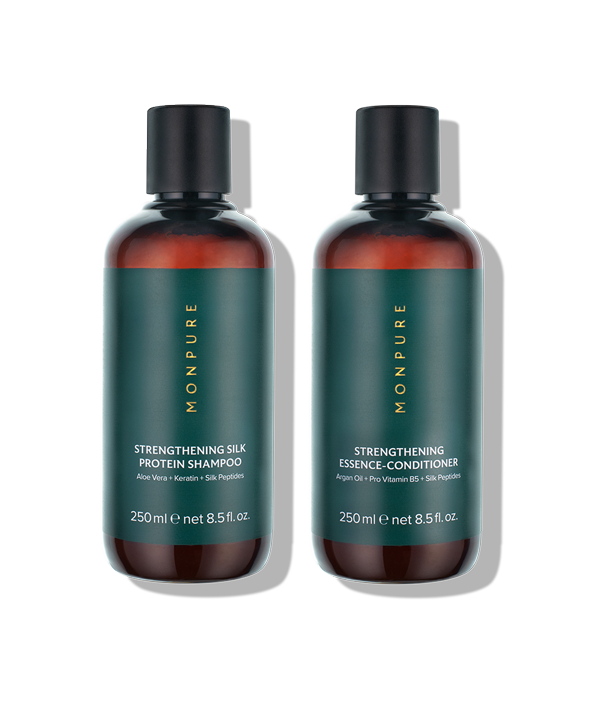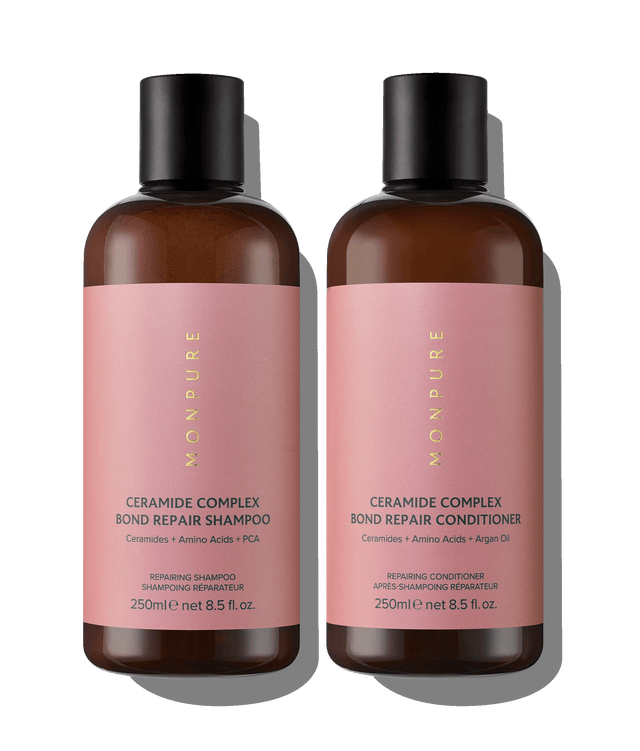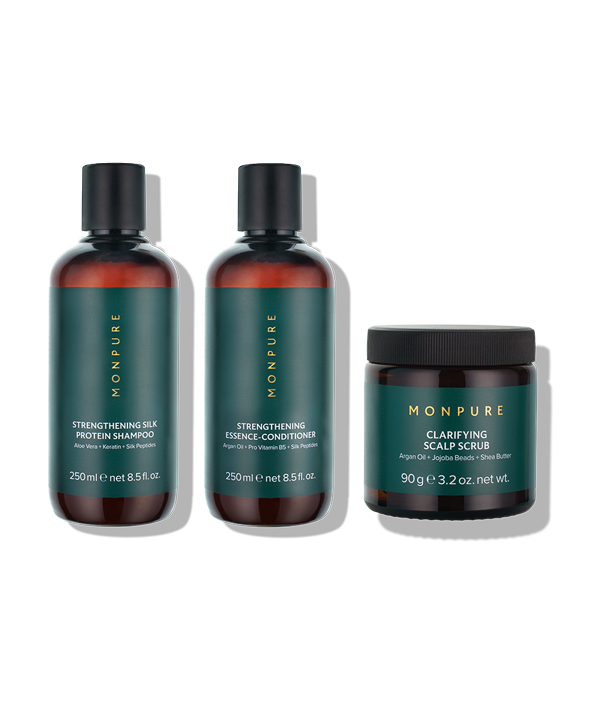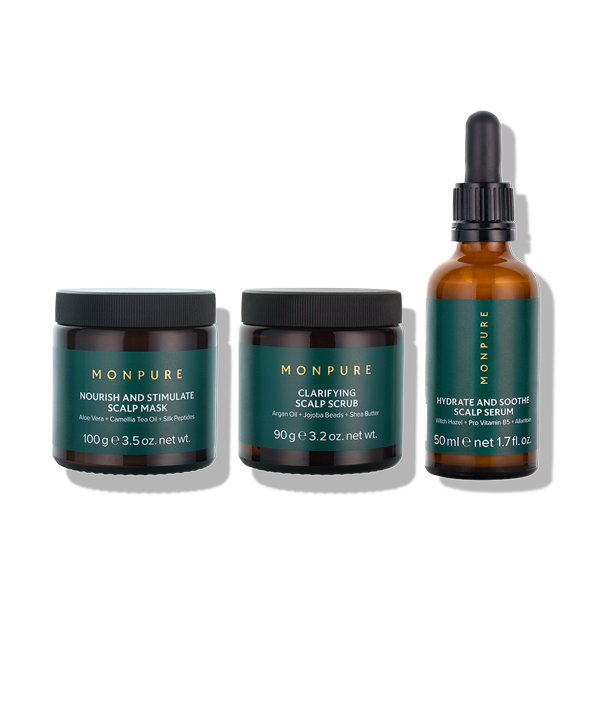Hair loss in pregnancy
While many women notice new-found hair thickness during pregnancy as a result of high oestrogen levels, some may experience hair loss in early pregnancy. However, more noticeable hair loss usually starts after pregnancy.
High oestrogen extends the active growth phase and prevents shedding, leading to luscious locks during pregnancy. But not all notice increased fullness.

Postpartum hair loss
When oestrogen levels decline after giving birth, the hairs that remained in a prolonged growth phase during pregnancy abruptly enter the shedding phase:
- This hair loss condition postpartum is called telogen effluvium
- Hairs enter rest phase in a ‘synchronous wave’, peaking at ~30% loss by 9 weeks
- Most shedding occurs 2-4 months postpartum but is temporary
The science behind this:
- Hair grows underneath skin for ~2 weeks before emerging
- When oestrogen drops after birth, the growth phase ends abruptly
- Shedding phase starts for hairs that remained active in pregnancy
- High percentage of synchronise transition, causing noticeable loss

When does postpartum hair loss start?
In the first weeks postpartum, hairs synchronize into the shedding phase. Noticeable thinning occurs around 2-4 months.
When does postpartum hair loss stop?
By 6 to 12 months postpartum, hair transitions back to normal cycles and growth resumes.
How long does postpartum hair loss last?
Postpartum hair loss usually lasts from 2 to 4 months.

Luckily, postpartum hair loss is very common and only temporary. By 6 to 12 months postpartum, your hair begins transitioning back to normal cycles and regular growth resumes. You may even begin noticing a lot of bothersome ‘baby hairs’ that won’t stay in your ponytail. Good news, this is a telltale sign of new regrowth coming through, and your hair will usually be restored to its pre-baby fullness by your child’s first birthday.
The key to effectively treating any form of hair loss is to start at the scalp. Hair grows underneath the skin for a full two weeks before it emerges on the scalp. This is why care and attention during the hair’s incubatory period is essential to healthy hair growth. MONPURE always uses a triple-layered approach in all of our solutions, targeting the scalp, follicles and hair itself.
Treating Postpartum Hair Loss
The MONPURE range is brimming with solutions that cultivate the best dermatological condition for the scalp, even under the fluctuating hormonal conditions that women face throughout the lifetime, including postpartum.
The Motherhood Hair Density & Restoration System has been designed by experts to restore hair thickness, help reduce hair shedding and thinning, and cultivate strong, healthy hair. This carefully curated haircare system helps mothers revive their luscious locks after delivery (postpartum), stimulate dormant hair follicles and revitalise a sense of wellness after the stresses of pregnancy.
This 5-step regime works in harmony with the natural hair growth cycle, creates a healthy environment for boosted hair density and helps rebuild the natural strength of hair with every use.
The set features MONPURE’s best-selling Follicle Boost Hair Density Serum, which contains natural solutions to hair loss and thinning. Formulated on scientific grounds, this invigorating hair growth elixir works like fertiliser to a flower-bed. It initially works to minimise excess shedding and also boosts the growth of new follicles leaving the shedding phase and entering into a new cycle of the growth phase, which usually takes around 6 months.
The product’s star ingredient, pumpkin seed extract, has been scientifically proven to block the 5-alpha reductase enzyme responsible for converting testosterone into DHT, the hair-loss-causing androgen that shrinks the follicle’s growth phase and prolongs its shedding phase when oestrogen levels plummet.
The serum is also formulated with innovative active ingredients retinol and lactic acid, that gently decongest clogged hair follicles, promote healthy cell renewal and enhance the absorption of other ingredients and nutrients. What’s more, it’s packed with antioxidants and antimicrobial properties that deliver nutrients and ward off dandruff. It is formulated with rosemary oil, which promotes cell turnover, boosts circulating and delivers nutrients and oxygen to the follicles.
Alongside the hair growth staple, the set contains the Strengthening Silk Protein Shampoo and Strengthening Essence-Conditioner, which rebuild the natural strength and structure of hair strands, repair fragile follicles and protect the hair and scalp from damage.
It also includes the innovative Nourish and Stimulate Scalp Mask, which works to feed the scalp with essential vitamins and nutrients, stimulate hair follicles and create the optimum dermatological environment for fuller, thicker and healthier hair to grow. Finally, to top off the stimulating and strengthening set, the Heal and Energise Jade Comb can be used to gently massage the products into the scalp. This helps relieve scalp tension, stimulate hair follicles, improve circulation and uplift mood.
Postpartum hair loss can be a challenging hurdle for new mothers, but with the help of MONPURE’s innovative solution, regrowth and healthy hair can be cultivated. MONPURE’s formulas nourish and strengthen the hair, providing support through the key milestones in women’s life, ensuring luscious locks and a boost in confidence.

Frequently Asked Questions
Is losing hair normal during pregnancy?
Some hair loss can happen in early pregnancy but more noticeable hair loss usually occurs after pregnancy. Hair growth is common in later pregnancy due to high oestrogen levels.
When does postpartum hair loss start?
In the first weeks postpartum, hairs enter the shedding phase in a ‘synchronous wave’ which causes noticeable hair loss around 2-4 months.
When does postpartum hair loss stop?
Hair loss usually transitions back to normal around 6 to 12 months postpartum when regular hair growth resumes.
How long does postpartum hair loss last?
Postpartum hair loss usually lasts from 2 to 4 months.
Is hair loss a sign of pregnancy?
Losing small amounts of hair can be normal in pregnancy due to hormonal changes. More noticeable hair loss usually occurs after pregnancy rather than being an early sign.






